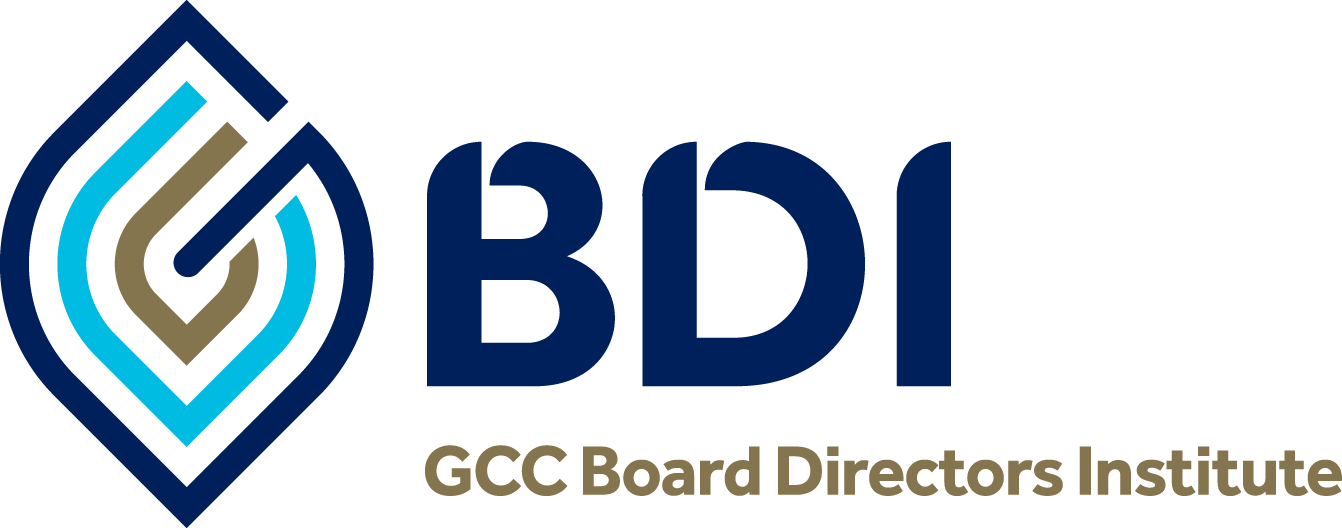Interview with Amelia Saud Al Maskari
1. Tell us about your career journey and your work with boards.
My career has been shaped by a deep commitment to governance, accountability, and strategic oversight. Beginning in finance and internal controls, I built a strong foundation in risk management and compliance before transitioning into governance. This shift allowed me to focus on strengthening governance frameworks, enhancing corporate structures, and driving board effectiveness to ensure greater transparency and long-term organizational resilience.
In my current role at the Oman Investment Authority (OIA), I lead key governance initiatives, ensuring that policies, frameworks, and governance principles align with international best practices. By focusing on performance enhancement, sustainable growth, and risk-aware decision-making, I help boards transform governance into a competitive advantage, ensuring they are not only compliant but also positioned for long-term success. I also work closely with boards to focus on optimizing board dynamics, advise on governance strategies, and performance evaluations.
The GCC BDI certification has further refined my expertise, equipping me with the leadership skills and governance expertise needed to contribute effectively at the highest levels. My goal is to continue shaping governance excellence, fostering sustainable growth, and supporting organizations in building resilient, future-ready governance structures
2. What are you most proud of and why?
I am most proud of my growth and continuous learning in the field of governance, where I've been able to drive meaningful change by enhancing frameworks and fostering more effective board dynamics. The opportunity to contribute to the development of robust governance practices that align with international best practices has been incredibly rewarding. Seeing the impact of my work in creating transparent, accountable, and strategic decision-making environments motivates me every day.
I am also deeply grateful for the opportunity I have had with the GCCBDI, which has broadened my expertise and refined my leadership skills, empowering me to contribute more effectively to the evolution of corporate governance. It’s not just about the milestones I've achieved but the continuous progress in strengthening governance structures and helping organizations thrive in a complex business world. This journey has allowed me to grow both personally and professionally, and it’s a privilege to continue making a difference in the governance space.
3. What are your professional areas of expertise and what skills do you bring to the boardroom?
With extensive expertise in corporate governance, internal controls, strategic risk management, and regulatory compliance, I provide the insights and leadership needed to support organizations at the highest level. My focus is on aligning governance frameworks with global best practices, fostering transparency, accountability, and sound decision-making—key factors for navigating today’s complex business landscape.
My experience in strengthening internal controls ensures operational excellence, effective risk mitigation, and regulatory compliance, enabling boards to make informed, data-driven decisions while safeguarding long-term value. Additionally, my expertise in ESG integration helps organizations embed sustainable practices that align with both business objectives and stakeholder expectations.
In the boardroom, I bring a strategic mindset and governance acumen that contribute to high-level discussions, long-term planning, and organizational resilience.
4. What are the benefits that diversity can bring to the boardroom, including women on boards?
Boardroom diversity is a key driver of effective decision-making and long-term organizational success. A diverse board brings a breadth of perspectives, fostering innovation, enhancing problem-solving, and ensuring a well-rounded representation of stakeholder interests. It also strengthens adaptability, equipping organizations to navigate an increasingly complex business environment with agility and insight.
The inclusion of women in boardrooms transforms dynamics in powerful ways, encouraging more inclusive discussions, challenging conventional thinking, and promoting a culture of accountability and sustainable growth. Women often bring valuable attributes such as resilience, strategic foresight, and a strong emphasis on diversity—critical qualities for addressing modern business challenges and opportunities.
For OIA, increasing the number of women directors within its portfolio companies is a strategic step toward building high-performing, forward-thinking boards. However, true progress extends beyond representation; it requires strong governance frameworks that integrate diverse voices into meaningful decision-making. Effective corporate governance ensures that all board members, regardless of gender, actively contribute, challenge assumptions, and shape strategic direction.
Ultimately, diversity—particularly gender diversity—leads to more innovative, resilient, and high-performing boards. OIA’s commitment to increasing female representation reinforces its dedication to both advancing governance excellence and fostering inclusive leadership that drives sustainable success.
5. What is your advice for women who are aspiring to leadership and board positions?
My advice to women aspiring to leadership and board positions is to recognize your inherent value and take proactive steps towards your aspirations. Leadership is not confined to a title but is defined by the ability to influence, contribute strategically, and drive meaningful change. Every woman brings unique perspectives, skills, and experiences that can significantly impact an organization’s success.
Start by building your self-confidence and embracing opportunities for personal and professional growth. Continuously expand your knowledge and develop your competencies, whether in leadership, governance, or other strategic areas. Seek out experiences that challenge you and enable you to broaden your capabilities, while remaining committed to your vision and goals.
It’s also essential to cultivate a strong network of mentors, peers, and allies who can offer guidance and support as you navigate your leadership journey. Focus on continuous learning, and be open to new perspectives and constructive feedback that will help you refine your approach and enhance your leadership skills.
Ultimately, leadership requires resilience, integrity, and the courage to make decisions that align with your values and the broader goals of the organization. By embracing these principles, women can carve out a path to leadership that not only benefits them personally but also positively influences the organizations and communities they serve.
